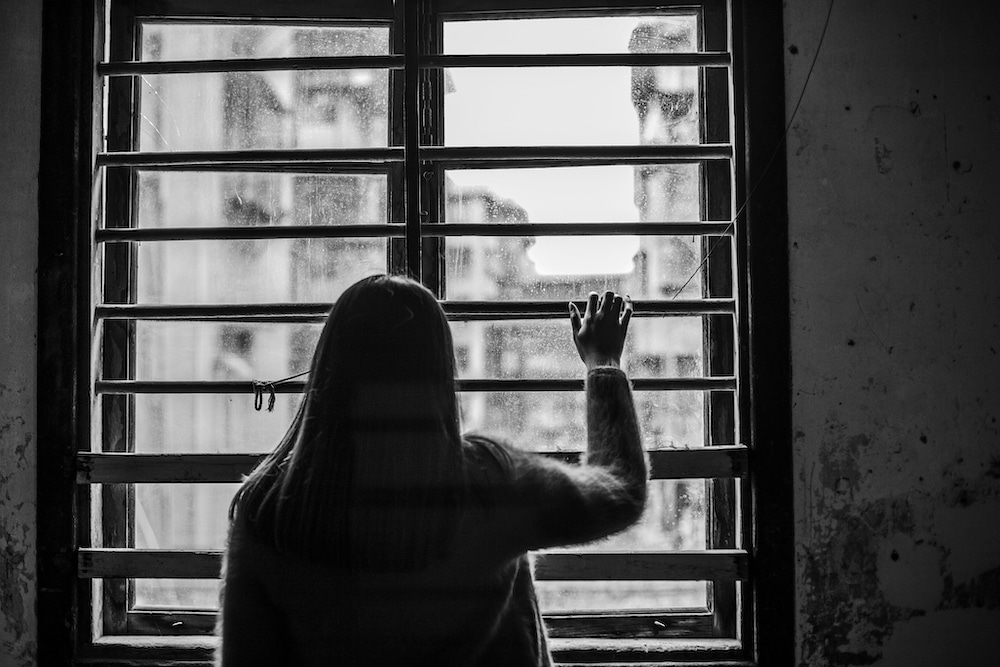Covid-19: the silent pandemic of mental health drags on

The strict measures introduced to curb the spread of Covid-19 have been a hard pill to swallow for our mental health. And as quarantines, lockdowns, and social distancing continue, psychiatrists and therapists are ringing alarm bells.
In October, Japan saw 2153 deaths by suicide, more than the country’s total number of Covid-19 deaths combined. Even if the country is known for its high suicide rate, the pandemic and ensuing restrictive measures have undoubtedly played a role in the rising number of suicides, according to professor Michiko Ueda, a suicide-expert at Waseda University in Tokyo. She warns that other countries could witness the same trend.
Doctors’ warning call
For a few weeks now several French psychiatrists and psychoanalysts have tried to warn public bodies about a worrying rise in serious psychological disorders. According to Jérôme Salomon, infectious disease expert and high-ranking civil servant, the percentage of the French population suffering from depression rose from 11% in September to 21% in November, a spike influenced without a doubt by the second autumn lockdown.
Interviewed by Europe 1, French psychiatrist Serge Hefez said that he believed 20% of the French population to be at risk of some kind of psychiatric disorder. And as more and more experts are ringing alarm bells, mental health professionals are asking the French government for swift action to tackle the growing issue. Among the initiatives requested is an awareness campaign to destigmatize mental health. The issue of mental health has also sparked a debate about funding accorded to psychiatric research in France.
Hospitals come to the rescue
Despite the lack of response from French authorities, hospitals and local charities filled the gap through initiatives: a silent revolution. In Monaco, the Covid-19 call centre has a psychological support unit that can be reached every day from 10 am to 8 pm. “Experienced professionals will listen and provide guidance on how best to live through this pandemic period from a personal and emotional point of view,” says the Monegasque government.
At the Sainte Marie Hospital Centre in Nice, a welcome centre has been open since the beginning of the pandemic to take care of people experiencing mental health symptoms. “We’re in a very difficult period and people are under more psychological stress than usual,” Dr. Anne-Laure Côte, psychiatrist at the Sainte-Marie Hospital. “We have noticed that new people have come for consultations, people whom we had never followed previously.”
Consultation is free, allowing doctors to reach an audience of all social backgrounds and ages. “The longer the crisis drags on, the more we see symptoms of anxiety, depression, or insomnia. During the first lockdown, we all thought that it would end quickly, which obviously wasn’t the case,” says Dr. Giugiario-Gorla, head doctor of the Psychiatry Centre at the Sainte-Marie Hospital.
>> READ ALSO: Beware the burnout: aftermath of Covid-19
From early symptoms to actual illness
Despite awareness campaigns, a lot of people do not feel concerned by the issue of mental health and will refuse to consult professionals. Experts however warn that treating mental health issues is most effective when a person receives support at the very first symptoms. The key takeaway: you should not be ashamed to ask for help.
“Given the general state of our mental health today, if you’re wondering whether you should consult a psychologist, it’s probably because you do need some kind of support,” advises Dr. Anne-Laure Côte.










